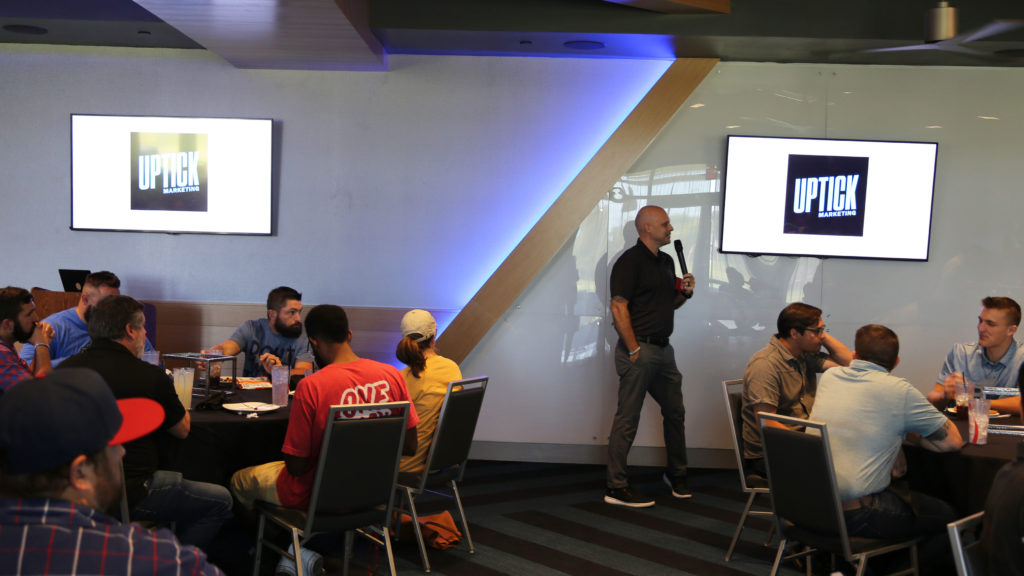Children who experienced the April 2011 tornado outbreak may relive the traumatic experience especially during times of severe weather through frightening dreams, reenactment or repetitive play of the trauma, or disorganized/agitated behavior (Diagnostic Criteria from DSM IV). Children can also be secondarily traumatized by a loved one’s trauma as the child who experienced symptoms of trauma when her sister’s toys were destroyed in the tornadoes.
Other symptoms are sleep issues, outbursts of anger, difficulty concentrating, anxiety and exaggerated startle response. The symptoms occur after the traumatic event and reoccur during periods of stress. Stressors such as personal relationships, work-related issues, financial and health stressors can cause anxiety symptoms and sometimes flashbacks of the trauma. Flashbacks may be triggered on a conscious level as we remember the traumatic event. We “feel” like the trauma is still happening as a particular piece of trauma memory such as a smell or any other sensory experience triggers the experience all over again. For instance, witnessing a child being disciplined in public can trigger trauma of child physical or sexual abuse, watching a movie involving domestic violence can trigger the trauma of rape, seeing a car accident can trigger the memory of our own car accident or hearing fireworks can resemble gunfire for our war veterans. Trauma may reoccur subconsciously in our dreams and nightmares.
Trauma is any life-threatening situation.
A traumatic event is usually defined as an event in which a person’s life was threatened or endangered or the witnessing of another person’s life being threatened or endangered. Traumatic symptoms result from feelings of intense fear, helplessness and horror to the traumatic event.
Treating traumatic stress is often found in the grieving process or process of grieving the loss of the trauma. Medication therapy is often recommended for clients with PTSD and trauma response. Behavorially we seek to process further the traumatic event if needed and to reduce anxiety levels caused by the stress, which is triggering the trauma. Anxiety is that free-floating fear that something is wrong or is going to go wrong.
Often stressors trigger a traumatic response by our subconscious “what if” thinking. When a traumatized person under stress begins thinking “what if … happens” stress hormones such as adrenaline, cortisol and others are released into our systems and alert a person that danger is here. Traumatized persons can learn to put a behavioral code in their thinking to “turn off” the body’s alert system. When a person feels danger is near, the fight, flight or freeze response will deploy. The word “danger” is the word “anger” with a “d” and often when a traumatized person does not feel safe, trauma anger is the response.
Many of us have security systems in our homes. If we fail to put in the code to turn off the alarm upon returning home the alarm goes off even if the home owner is the one in the home — not an intruder. Much the same way, the body’s alarm system is activated when the traumatized person’s stress level is high. Putting in the behavioral code for treating anxiety and trauma response helps to turn off the body’s alarm system.
In treating anxiety and trauma response we know that relaxation helps calm the body’s defense system. Stopping the “what if” thinking, staying in the present moment and deep breathing allow the body’s alarm system to relax and return to normal response. Practicing daily relaxation or recreation allows the mind and emotions to “recreate” and much like a computer to “restart” a healthier perspective of thinking and feeling response.
Our faith response of Bible study, prayer and meditation is not only calming but reassuring that God is sovereign and in control. Our faith response also helps with the “what if” thinking as many clients report putting their anxiety and fear in God’s hands allows them to trust God deeper with the uncertainties of life.
Developing a safe plan with the traumatized person helps prepare for the “if and when this kind of trauma event might happen again.” Often in trauma a person is unaware of the impending danger before the trauma occurs so preparation is at a minimum at the moment of trauma. This is not always true as in tornado preparedness and some other forms of trauma preparedness such as for workplace violence where a plan may be in place. Developing a safe plan for what a person would do to respond to the impending danger of a similar trauma is often a safety net for when the next trauma should occur. Depending on the type of trauma, the safe plan would correspond to how to keep a person safe in the event that the same trauma would occur in the future.
All of us quite likely will experience some form of trauma in our lifetime. Processing the traumatic event as soon as possible after the event with a doctor or counselor can help in preventing or treating the stress disorder we call PTSD. Earliest intervention of a traumatic event is recommended for the best possible outcomes. Pathways Professional Counseling counselors have been trained in Critical Incident Debriefing of traumatic events such as natural disasters and school/church traumas and are available to come to your setting to assist in processing the traumatic event. Counselors also are available in satellite offices around the state.
For more information about Pathways or to contact a counselor, call 205-945-0037 or visit www.pathwaysprofessional.org.
___________________________________________
How to help a friend or child
- Help ensure the trauma survivor is eating and sleeping on a regular, healthy schedule.
- Help ensure the trauma survivor is getting regular exercise.
- Help the trauma survivor develop a “safety plan” for what to do in the event of another, similar traumatic event.
- Be purposeful about helping the person relax. Encourage adults to breathe slowly and deeply. Blowing bubbles with children is a fun way to practice controlled breathing.
- Allow the person to grieve the losses they have experienced.
- Pray for and with the trauma survivor.
- Regulate your own emotional response. A child’s reaction to a traumatic event is greatly influenced by the parents’ reaction. The more calm the parent, the more calm the child.
(Source: Melanie Howard, Pathways Professional Counseling)
_________________________________________________
Faith Response
Renay Carroll, a counselor with Pathways Professional Counseling, says that resuming normal activities, including Bible study, prayer and meditation, can help victims of trauma calm the body’s defense system.
“Our faith response reassures us that God is sovereign and in control,” she said. “When they are able to put their anxiety and fear in God’s hands, many clients report that they are able to trust God deeper with the uncertainties of life.”
Carroll said one resource she uses with children is a book titled “Brave Bart: A Story for Traumatized and Grieving Children” by Caroline H. Sheppard.
Other books recommended by various counseling sources are:
- “The Hurt” by Teddi Doleski
- “A Terrible Thing Happened: A Story for Children Who Have Witnessed Violence or Trauma” by Margaret M. Holmes and Sasha J. Mudlaff
- “Tear Soup: A Recipe for Healing after Loss” by Pat Schwiebert and Chuck DeKlyen (TAB)
To read other articles in this package, click here, here or here.






Share with others: